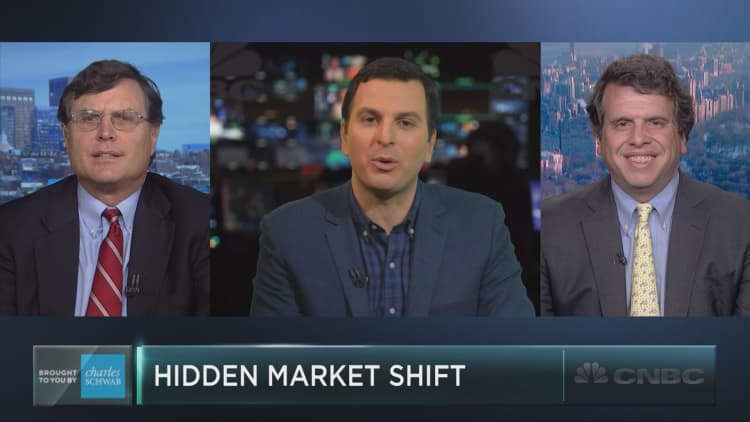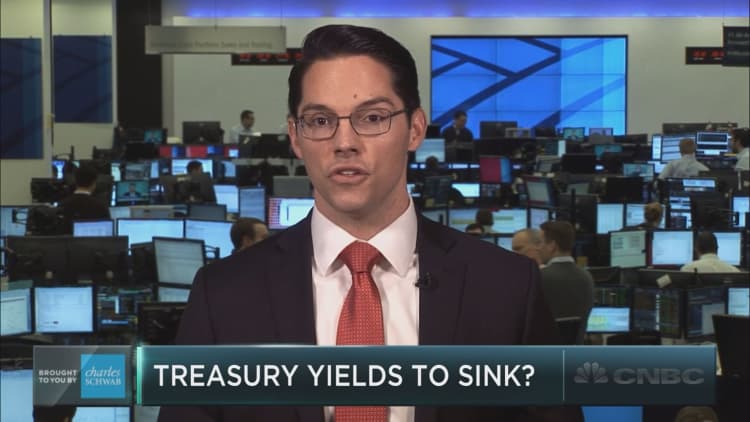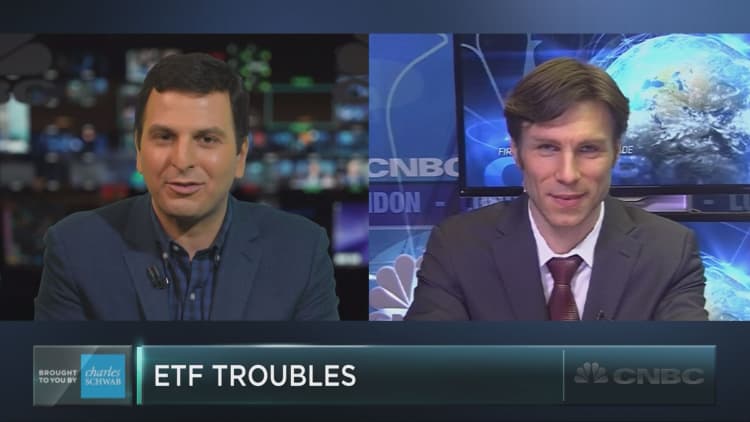


There's been a big shift in the way stocks are moving, but it's one many investors may have missed.
Since Donald Trump's election, the correlation of the average S&P 500 sector to the as a whole has fallen dramatically. Or to put it more simply, different groups of stocks are following their own separate tunes to an extent that they haven't for years.
"For the entire time from the financial crisis through the election last year, assets in the U.S. market all traded largely the same way," Nicholas Colas, chief market strategist at Convergex, said Friday on CNBC's "Trading Nation." "Now, sectors are moving a lot more based on their own fundamentals, and it's really the first time since 2009 since we've seen it."
"It's really a big change," Colas added.
One potential explanation for the shift — which Colas says he "chalk[s] up entirely to Donald Trump's victory" — is that the president's potential economic policies could create winners and losers. For instance, a greater tax on imported goods would be good news for U.S. manufacturers that compete with foreign companies, but trouble for retailers that import much of their inventory from abroad.
Whatever the cause, the decline in correlations has a few profound effects.
First of all, it dampens overall S&P 500 volatility, which makes sense insofar as declining correlations mean that one sector will provide a "balance" for another. Working off the above example, if a drop in consumer discretionary stocks offsets a rise in industrials, the overall effect on the market will be muted.
Indeed, by many different measures, S&P volatility is the lowest it's ever been.
Second, "Getting sector and stock bets right just got a whole lot more serious," as Colas put it in a Friday note. If one sector performs very differently from another, investing in the right one becomes that much more important. This means active managers can stand to make much more off their bets, though it also means they can stand to lose more (relative to the overall market).
"People always think that you've got to have the hot guy with the hot stocks, but the really good long-term investor is someone who also avoids the bad ones, and there's more of them out there than there have been in the past," Miller Tabak equity strategist Matt Maley said Friday on "Trading Nation."






